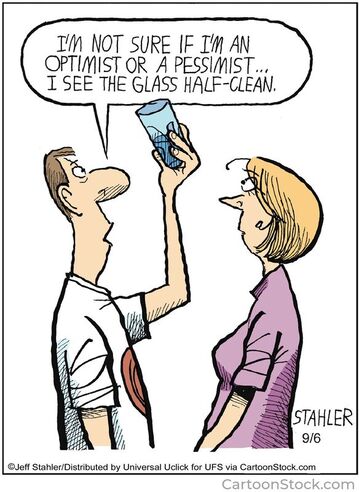|
Douglas Silas,
Specialist SEN Solicitor 29th November 2021
In this week's SEN Update, you will find sections entitled:
I know how busy everyone is, so feel free just to read the sections of interest,
or read everything; the choice is always yours.
THOUGHT OF THE WEEK
We have to be very careful sometimes to avoid talking negatively to ourselves. It is all too easy for us to see the bad in things sometimes, or be held hostage by our fears that we may not be able to do something. We all have lots of underlaying worries and we usually always default to the negative versions of things and then see the worst possible scenario, as we usually tend to inflate or exaggerate our fears. Your brain automatically thinks of the worst thing sometimes. It is like you also want to sabotage yourself unconsciously. It is like having someone inside your head constantly telling you that you cannot do something. But self-talk can be both positive or negative – it is always up to us. You cannot silence that inner negative voice completely, but you can ignore it and try to remember that it is just your fears that are talking. There is also always a difference between the message that we get from our brain and the way that we choose to respond to it. I know that this is something that is often quite hard for us to do naturally, as we frequently grow up and become increasingly cynical over many years, perhaps as an unconscious self-defence mechanism. However, we can also choose the opposite way to look at things if we really try to. For example, we often hear people referring to themselves or others as a ‘pessimist’ or an ‘optimist’ and seeing a glass as ‘half-empty’ or ‘half-full’. Some people even like to try to say that they are not one of these, but instead are really a ‘realist’ or a ‘pragmatist’, but this often sounds to me like a pessimist talking! Another example is the: “What if?” questions, which are usually quite negative and are just the pessimist inside of you talking and asking: “What if this or that happens and things turn out for the bad?” But you can actually flip this question around most of the time and instead ask yourself something like, “What if this or that turns out to be for the good and not for the bad?” Imagine it is like in a fairytale or children’s story and you have to make yourself resist going down the bad path, which only leads you to bad things and instead choose the good path, which only leads you to good things and which eventually takes you to the enchanted castle at the end! The irony is that we usually laugh at characters in films or on TV with negative emotions and outlooks on life, such as Eeyore, from Winnie The Pooh, or Marvin the Paranoid Android, from The Hitchhikers Guide to the Galaxy (I am sure you can think of many more characters like this). If that person were outside of you who was constantly saying negative things, you would simply laugh at them and ignore them. Yet, because it is your own voice telling you something inside your own head, you tend to give it more credibility and take it more seriously. You must not dwell on things and let them take over your thoughts. You also have to often let go of things and move on. For example, you find that, sometimes, your brain just seems to go back unconsciously to some of the worst things in your life from many years ago, which has nothing to do with what you are doing at the time. So, this week, if you hear that little voice inside yourself talking negatively and saying that you cannot do something, try to ignore it if you can and realise that it is just your unconscious fears probably talking to you and do not let it control what you do!
NEWS ONLINE
In terms of news, here are the articles that I found of interest this week: Covid jab wait for 12- to 15-year-olds in England could be up to five months Councils in England report 34% rise in elective home education Covid: Schools asked to test on-site after Christmas
SEN NEWS
Again, aside from clicking on the relevant links for more information, I would also remind you of the very useful resources and information provided on the following websites: - IPSEA - Council for Disabled Children - Special Needs Jungle I would also highlight again the magazines: SEN Magazine and Autism Eye which are both very helpful to any parents or professionals involved with children/young people with SEN. Keep safe until next week. With best wishes Douglas
P.S. Don’t forget, to ensure that you never miss one, you can get my SEN Updates personally by completing your email details above, or by following me on one of the social media platforms I use (i.e. Twitter/Facebook).
P.P.S. You can also share this SEN Update with others (please only do so if it may be relevant to them) by using one of the icons, usually to the right or at the bottom of this page.ere to edit.
How useful do you find my SEN Updates?
Created with Quiz Maker
Comments are closed.
|
Archive
March 2022
|
© Douglas Silas Solicitors 2005-24
Authorised and Regulated by the Solicitors Regulation Authority (SRA no: 643718)
‘Douglas Silas Solicitors’ is the trading name of ‘Douglas Silas Solicitors Limited’, a limited company registered in England & Wales (company no: 10689991), whose registered office is Gable House, 239 Regents Park Road, Finchley, London, United Kingdom, N3 3LF. A list of members/directors may be inspected at our office.
Authorised and Regulated by the Solicitors Regulation Authority (SRA no: 643718)
‘Douglas Silas Solicitors’ is the trading name of ‘Douglas Silas Solicitors Limited’, a limited company registered in England & Wales (company no: 10689991), whose registered office is Gable House, 239 Regents Park Road, Finchley, London, United Kingdom, N3 3LF. A list of members/directors may be inspected at our office.





 RSS Feed
RSS Feed







